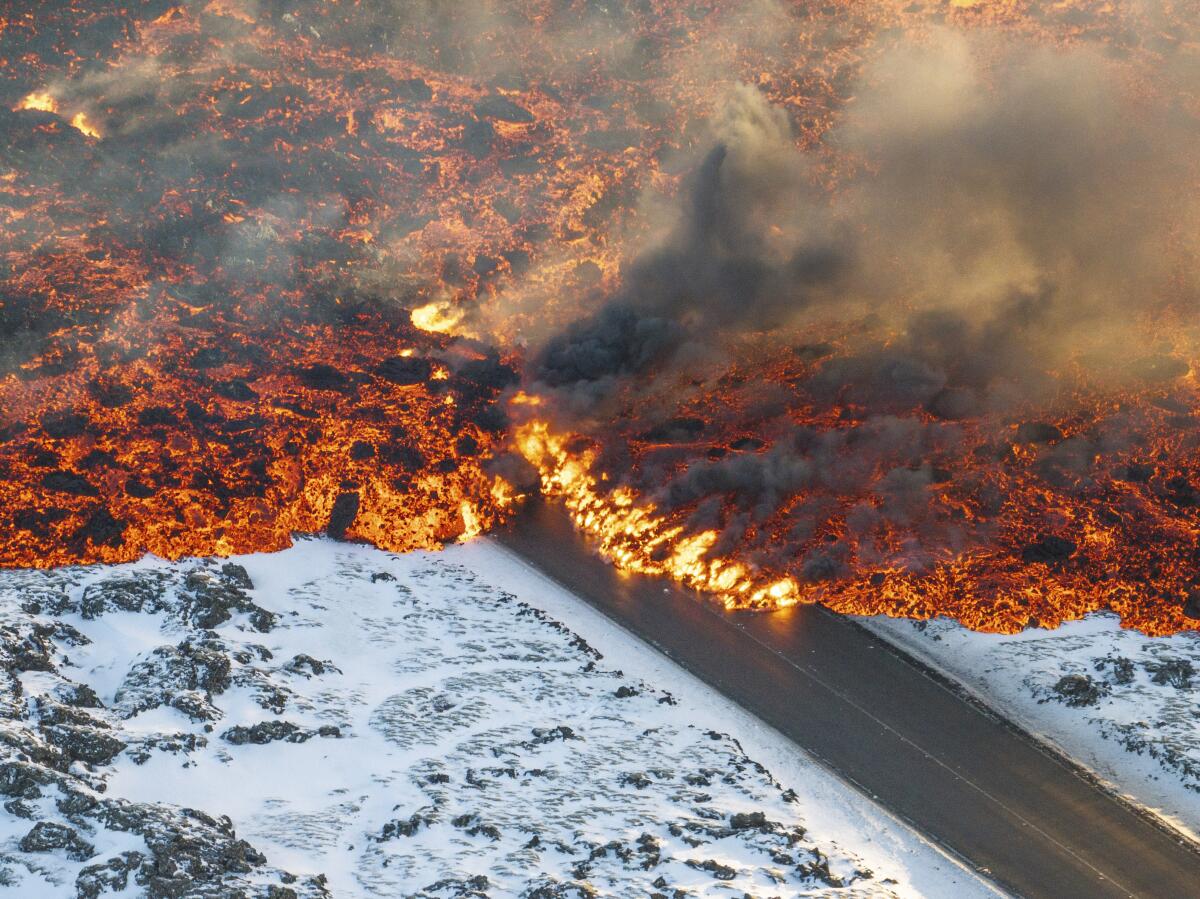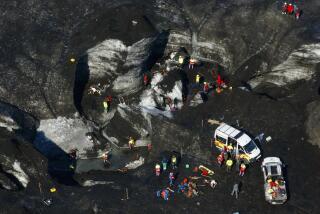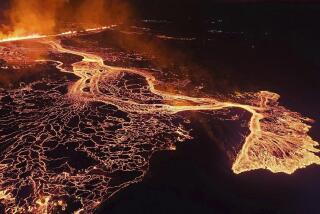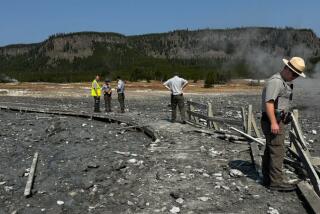A volcano in Iceland is erupting again, spewing lava and cutting heat and hot water supplies

GRINDAVIK, Iceland — A volcano in southwestern Iceland erupted Thursday for the third time since December, sending jets of lava into the sky, triggering the evacuation of the popular Blue Lagoon geothermal spa and cutting heat and hot water to thousands of people.
The eruption began along a nearly 2-mile fissure northeast of Mt. Sylingarfell, the Icelandic Meteorological Office said. Several communities on the Reykjanes Peninsula were cut off from heat and hot water after a river of lava engulfed a supply pipeline.
The strength of the eruption had decreased by midafternoon, the Met Office said, though lava continued to spew from parts of the fissure and a huge plume of steam rose over a section of the crack where magma mixed with groundwater.
The eruption site is about 2½ miles northeast of Grindavik, a coastal town of 3,800 people that was evacuated before a Dec. 18 eruption. The Meteorological Office said there was no immediate threat to the town Thursday.
Civil defense officials said no one was believed to be in Grindavik at the time of the new eruption. “They weren’t meant to be, and we don’t know about any,” Vidir Reynisson, the head of Iceland’s Civil Protection and Emergency Management, told national broadcaster RUV.
His agency said lava reached a pipeline that supplies several towns on the Reykjanes Peninsula with hot water — which is used to heat homes — from the Svartsengi geothermal power plant. Authorities urged residents to use hot water and electricity sparingly, as workers rushed to lay an underground water pipe as a backup.
The Blue Lagoon thermal spa, created using excess water from the power plant, was closed when the eruption began and all the guests were safely evacuated, RUV said.
The Icelandic Met Office earlier this week warned of a possible eruption after monitoring a buildup of magma, or semi-molten rock, below the ground for the past three weeks. Hundreds of small earthquakes had been measured in the area since Feb. 2, capped by a burst of intense seismic activity about 30 minutes before the latest eruption began.
Dramatic video from Iceland’s coast guard showed fountains of lava soaring more than 165 feet into the darkened skies. A plume of vapor rose about 1½ miles above the volcano.
Iceland, which sits above a volcanic hot spot in the North Atlantic, averages an eruption every four to five years. The most disruptive in recent times was the 2010 eruption of the Eyjafjallajokull volcano, which spewed huge clouds of ash into the atmosphere and led to widespread airspace closures over Europe.
Dave McGarvie, a volcanologist who has worked extensively in Iceland, said it’s highly unlikely the “gentle, effusive” eruption would disrupt aviation because such volcanoes produce only a tiny amount of ash.
Grindavik, about 30 miles southwest of Iceland’s capital, Reykjavik, was evacuated in November when the Svartsengi volcanic system awakened after almost 800 years with a series of quakes that opened large cracks in the earth north of the town.
The volcano erupted on Dec. 18, sending lava flowing away from Grindavik.
A second eruption that began Jan. 14 sent lava toward the town. Defensive walls that had been bolstered since the first eruption stopped some of the flow, but several buildings were consumed by the lava, and land in the town has sunk by as much as 4½ feet because of the magma movement.
No confirmed deaths have been reported, but a workman was missing after falling into a fissure opened by the volcano.
Both the previous eruptions lasted only days, but they signal what Icelandic President Gudni Johannesson called “a daunting period of pheaval” on the Reykjanes Peninsula, one of the most densely populated parts of Iceland.
Danica Kirka and Jill Lawless of the Associated Press contributed to this report.
More to Read
Sign up for Essential California
The most important California stories and recommendations in your inbox every morning.
You may occasionally receive promotional content from the Los Angeles Times.










